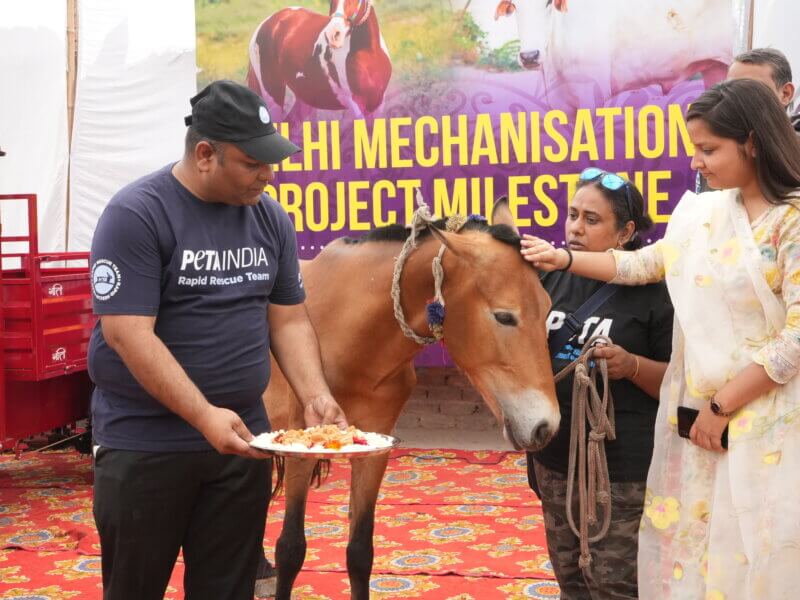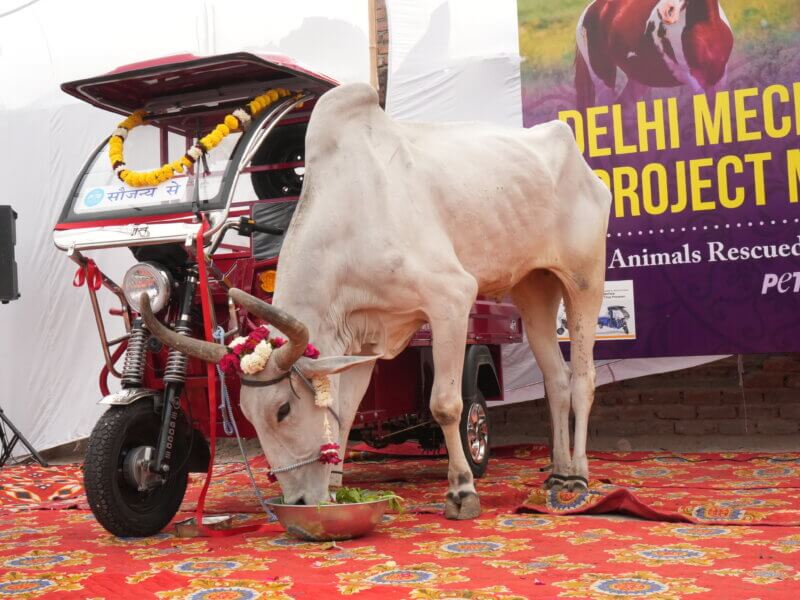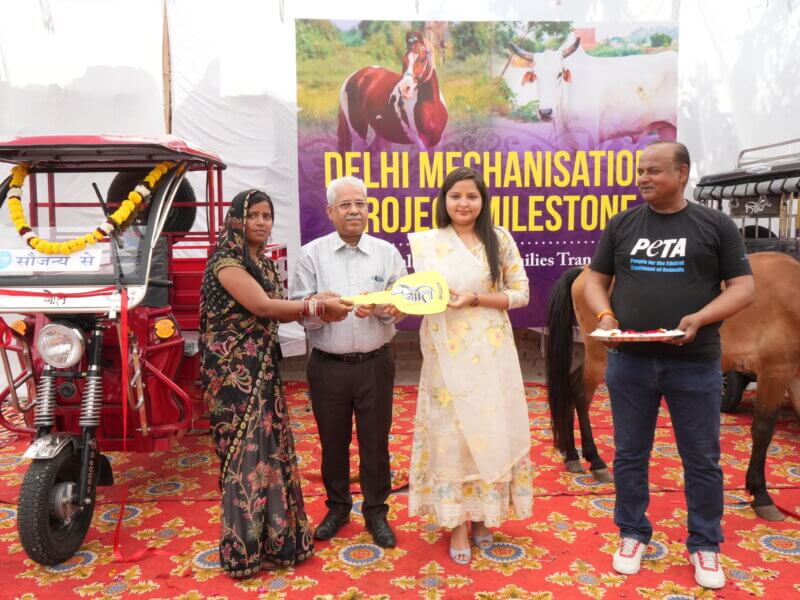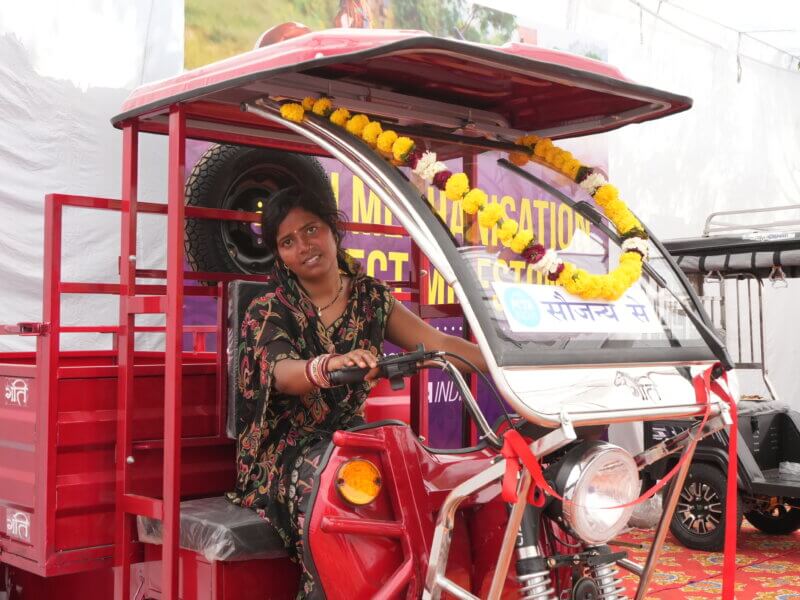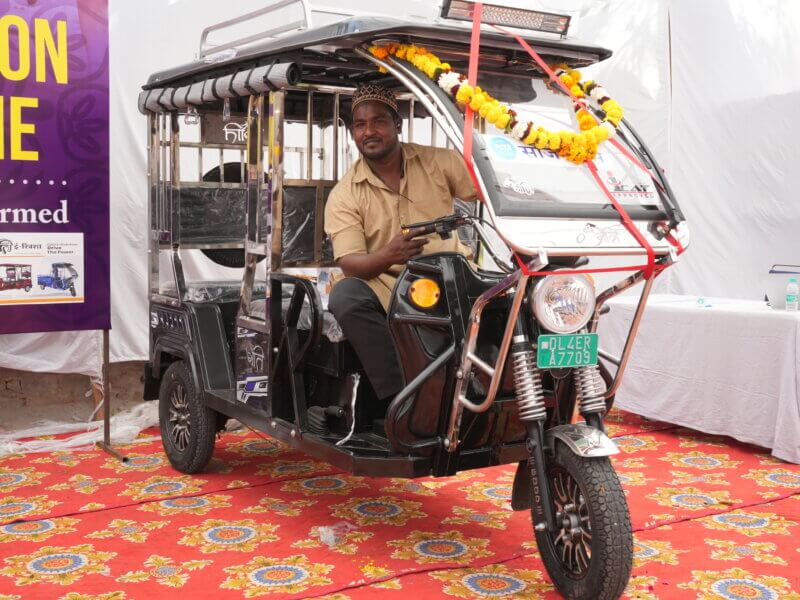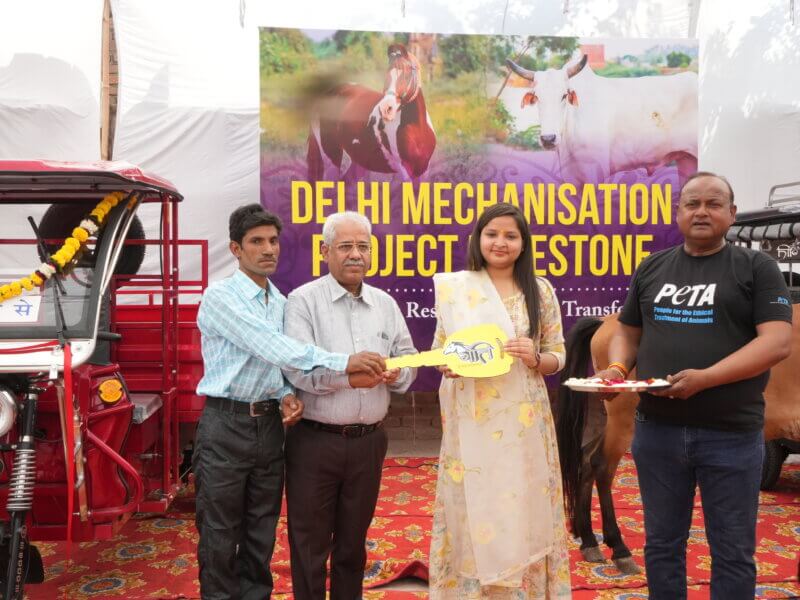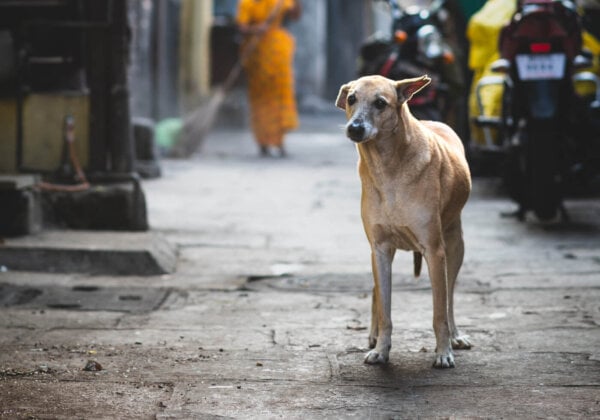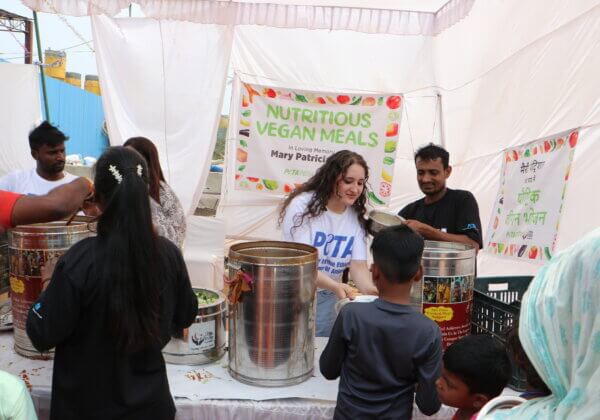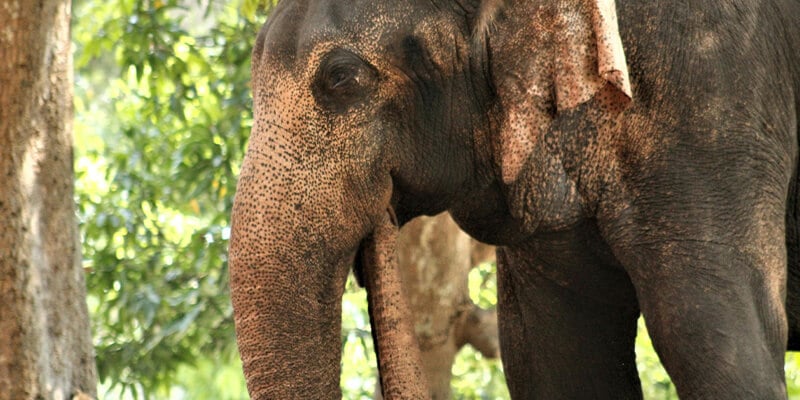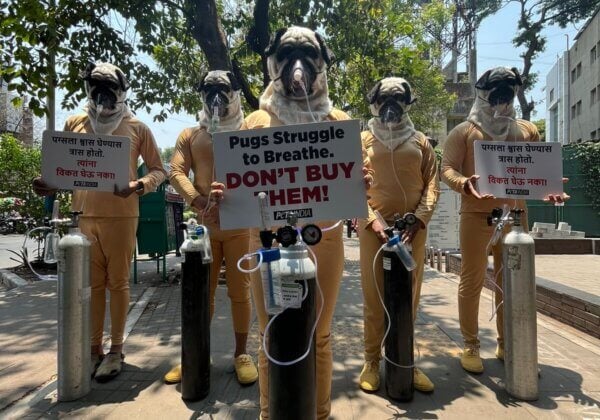150th Animal Rescued From Hard Labour Through PETA India’s Delhi Mechanisation Project; Aam Aadmi Party Councillor Shivani Panchal and PETA India Present E-Rickshaw Keys at Event
After recently making the Assam Timber Market in Nangloi, Delhi, animal-free, PETA India celebrated the historic exchange of the 150th animal rescued from a life of hard labour during an event held on 20 March, 2024, in Shahid Chandrashekhar Park on Loni Road in Shahdara, Delhi. Aam Aadmi Party Councillor Shivani Panchal and PETA India Director Poorva Joshipura handed over keys for e-rickshaws to 24 former animal cart owners. The bulls, horses, and other equines rescued by PETA India live out their days in peace at sanctuaries. The initiative symbolises PETA India’s commitment to ending animal exploitation and fostering sustainable livelihoods. Hundreds of bullocks and horses continue to ply slow-moving carts and tongas in Delhi, posing a traffic hazard and a danger to public health and the environment, including through the presence of dung and the carcasses of animals who died in the trade. Even though Resolution No 590, dated 4 January 2010, passed by the Municipal Corporation of Delhi prohibits the use of horse-drawn tongas in the city, such exploitation continues.
PETA India’s Delhi Mechanisation Project – a winner of the Giving Economy Changemakers Award – works to protect animals, such as bullocks, donkeys, ponies, and horses who are abused and forced to haul heavy loads, and to provide the families using them with better opportunities for earning a livelihood. Since the project was launched in 2018, PETA India has replaced dozens of equine tongas and bullock carts in Delhi with battery-operated e-rickshaws, ensured the rehabilitation of the rescued animals at sanctuaries, and enhanced the social and economic status of the humans benefitting from the project.
Recently, the National Research Centre on Equines of the Indian Council of Agricultural Research (ICAR-NRCE) identified three samples collected by PETA India from horses used illegally to ply tongas in Azadpur Mandi in Delhi as positive for glanders, a dangerous zoonotic disease that’s potentially fatal in humans. ICAR-NRCE urged the Delhi Department of Animal Husbandry & Dairying to restrict equine movement and conduct surveillance for further instances of disease and to handle the infected animals in accordance with The Prevention and Control of Infectious and Contagious Diseases in Animals Act, 2009. As a result, the director of the Department of Animal Husbandry & Dairying has directed a rapid response team to take measures in accordance with the National Action Plan for Control and Eradication of Glanders in India, 2019.
Equines and bulls are often forced to work even when they are sick or injured. Handlers use whips, painful nose ropes, and spiked bits to force them to haul overloaded carts. The animals are denied access to proper nutrition, adequate water, and shade from the blazing sun. They are typically worked until death and given no veterinary care for common painful health concerns, including wounds, abscesses, muscle and joint ailments, cancer, blindness, and yoke gall.


